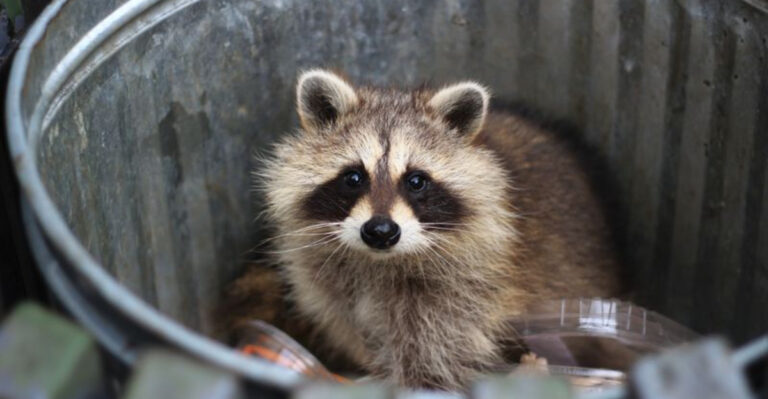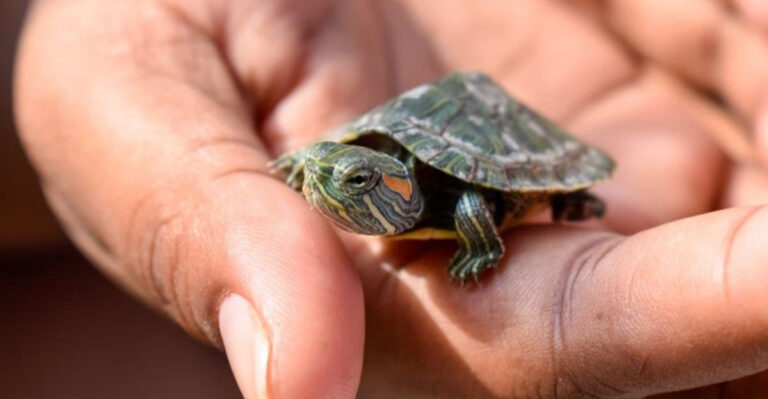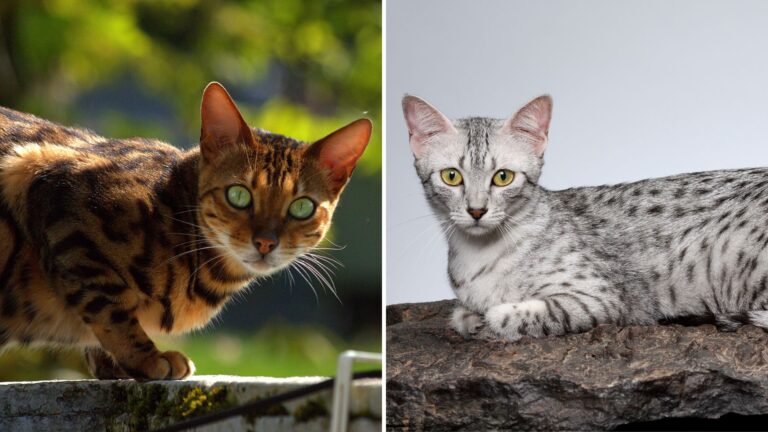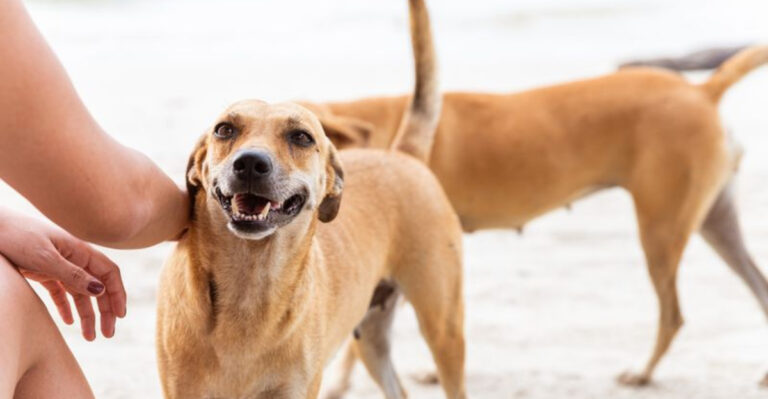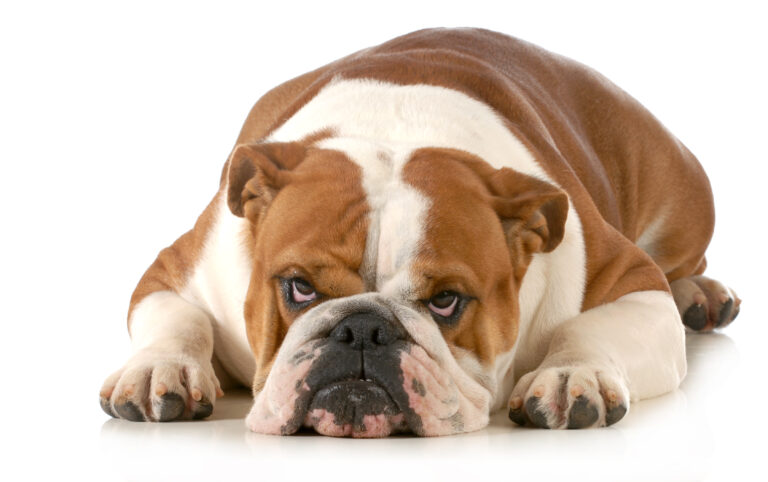15 Important Things You Should Know About The Mini Goldendoodle
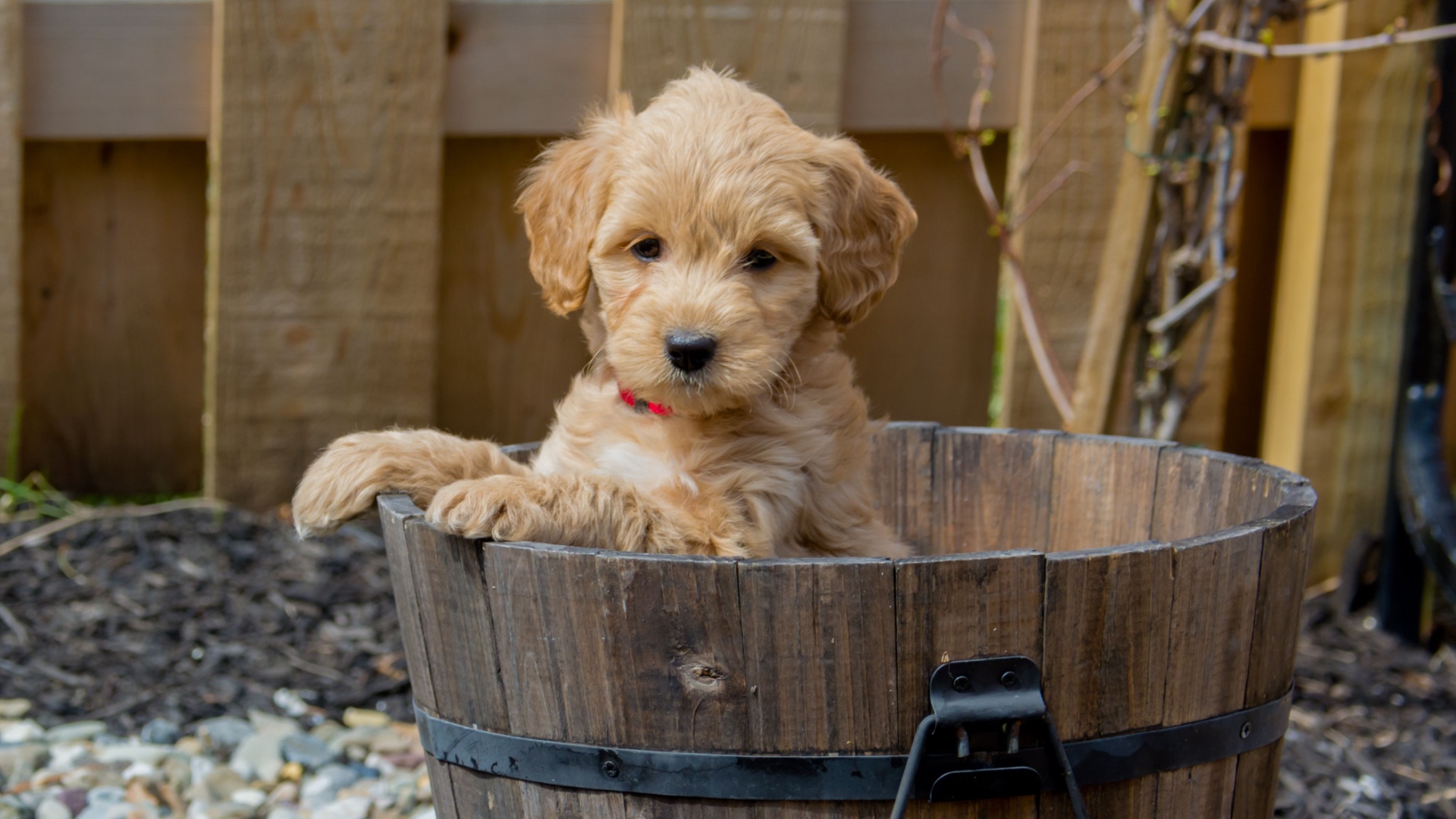
The Miniature Goldendoodle is what you get when you put together two of the best dog breeds around. One is the forever loyal Golden Retriever, and the other one can almost fit into your pocket – the Miniature or Toy Poodle.
The Mini Goldendoodle is one of those dogs that is an excellent fit for pretty much anyone. They are great for big families, young couples, or singles looking for a furry companion.
If you’ve always wanted a dog, but someone in your household struggles with allergies, then you’ve come to the right place. Apart from their adaptability to any human environment, they hold a number of other fantastic features.
Without further ado, let’s find out why this dog is one of the best family pets around!
1. Overview
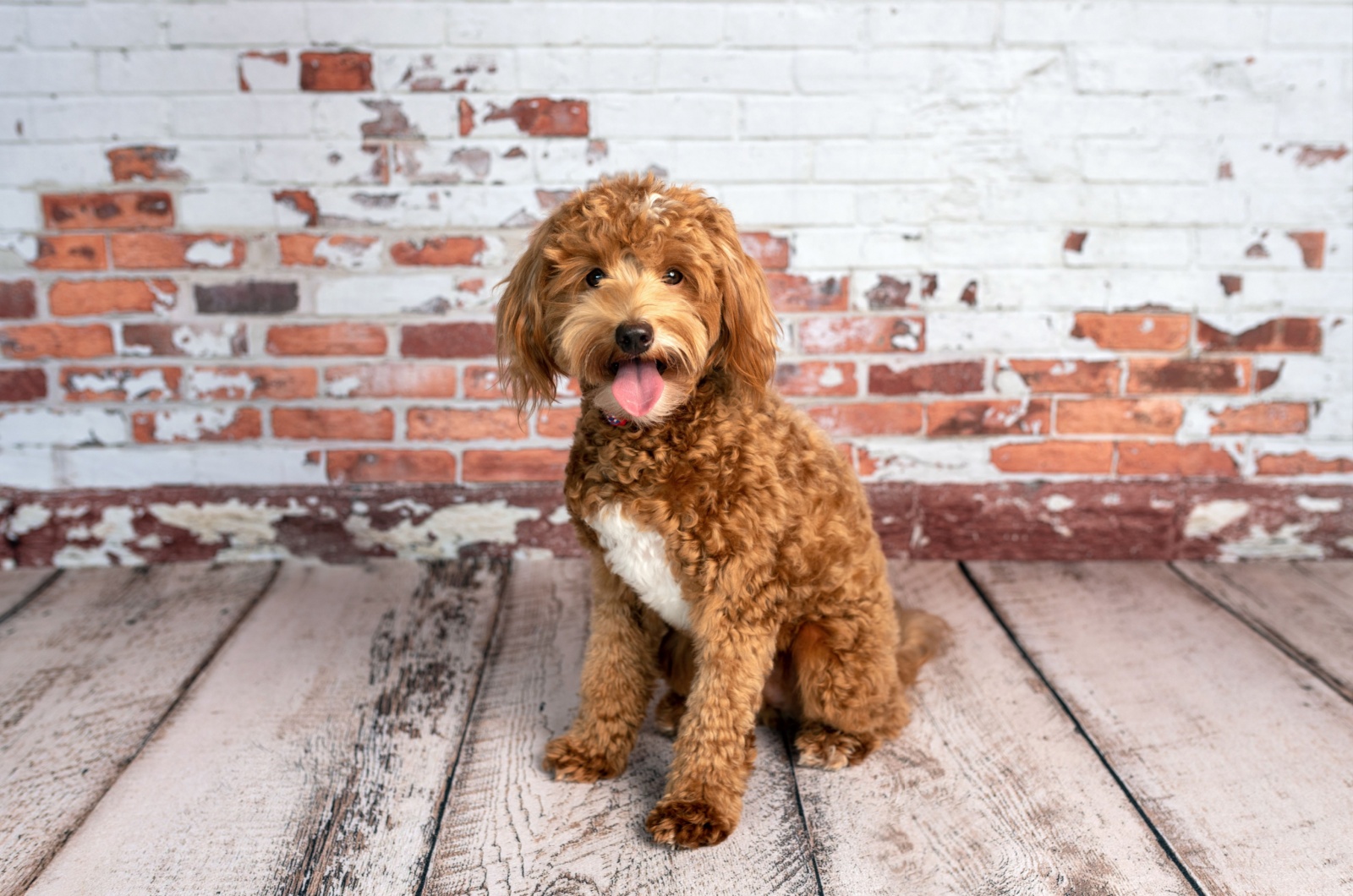
The Goldendoodle was the first time many people heard the phrase ‘designer dog.’ Since the first time they were developed, this mix between a standard Poodle and a Golden Retriever has quickly gained popularity.
Over the past twenty years, this Doodle gained immense fame due to its hypoallergenic coat. But, as with most things nowadays, people want everything to be smaller, thinking they look cuter.
So, the next step in breeding the Doodle was to take a Golden Retriever and mix it with a Miniature Poodle.
Many people also didn’t understand as much as we do now about breeding two purebred lines. For instance, if you have allergies and this is your main concern when getting a dog, you should choose a second-generation dog of this mixed breed.
Most people probably wouldn’t want a Mini Goldendoodle whose parent is a Golden Retriever because of allergies. To keep you on track, you have to know that with these dogs, there are actually two subgroups that carry the Mini Goldendoodle name.
The information we provide below will hopefully clarify things and explain how to choose a puppy that fits your needs.
2. The Temperament Of A Mini Goldendoodle
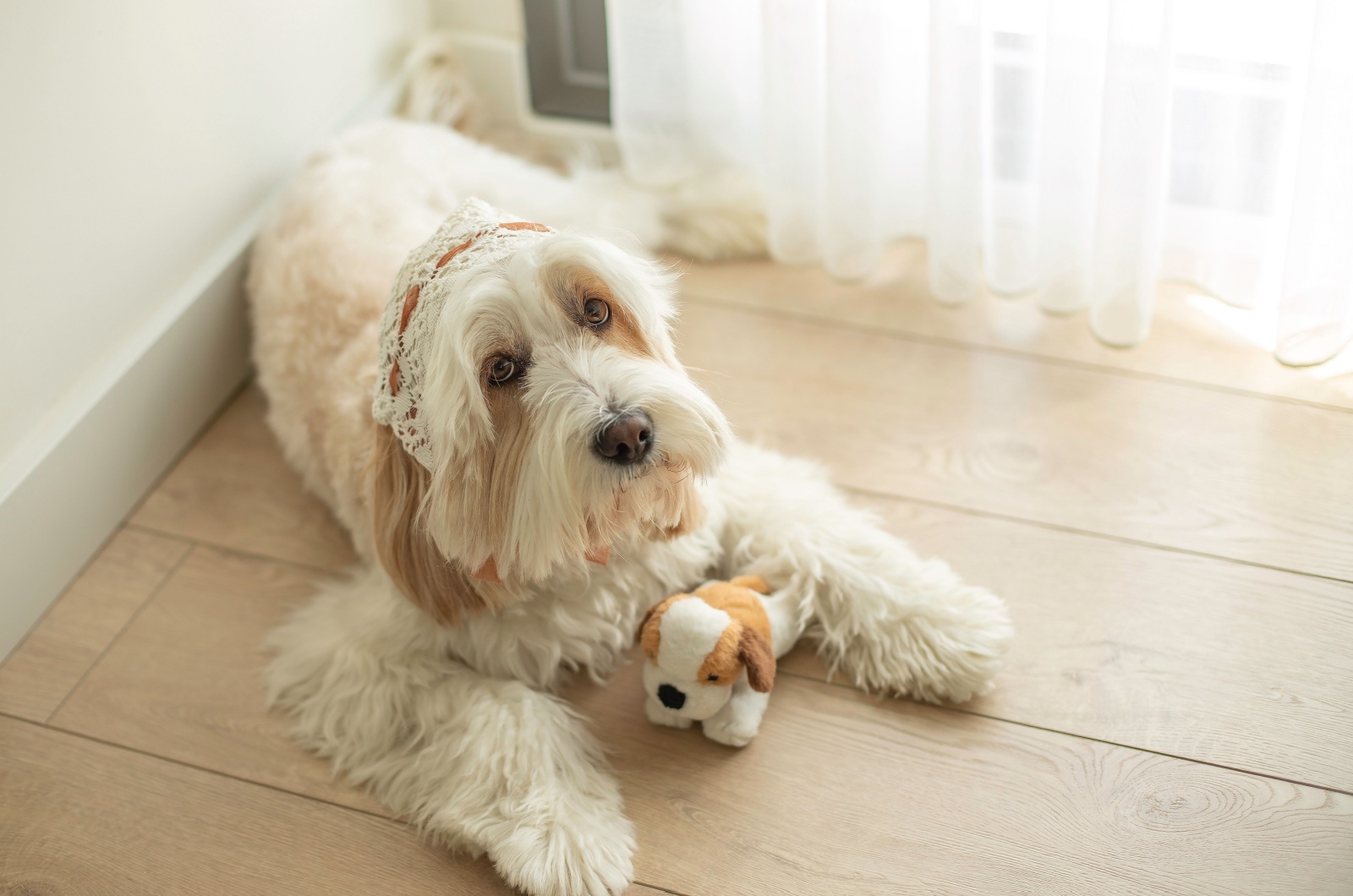
In short the mini Goldendoodle are friendly and affectionate, great with kids and other pets, always happy and outgoing, very smart and easy to train.
If you are looking for a low-maintenance dog that naturally loves people, kids, and animals, and is easy-to-train on top of all that, then one of these dogs is your best bet. They inherit their natural calm attitude from their Golden Retriever parent and enjoy being a part of the family. They also learn very quickly.
Golden Retrievers are well-known for their intelligence and obedience. This is why they are often used as therapy dogs, service dogs, guide dogs, and emotional support dogs. Impressed? There’s more.
Golden Retrievers are also employed as cadaver dogs, bomb detection dogs, and the list goes on. The versatility of these dogs is truly incredible.
For instance, a Golden Retriever will gladly go duck hunting with you and retrieve your game. They can also flush birds for upland game hunting. They can even be taught to point and flush game birds.
Goldens are also known for their love for people and being kind to everyone. Thus, they rarely exhibit aggressive behavior toward humans or other animals.
But, don’t let this fool you into thinking that they aren’t alert. They can be excellent watchdogs, although they do require some extensive training for this skill.
A lot of people want a Mini Goldendoodle because they require little effort in the training department anyway. Also, considering their miniature size, they can’t really be that scary, can they?
3. The Adaptability Of The Miniature Goldendoodle
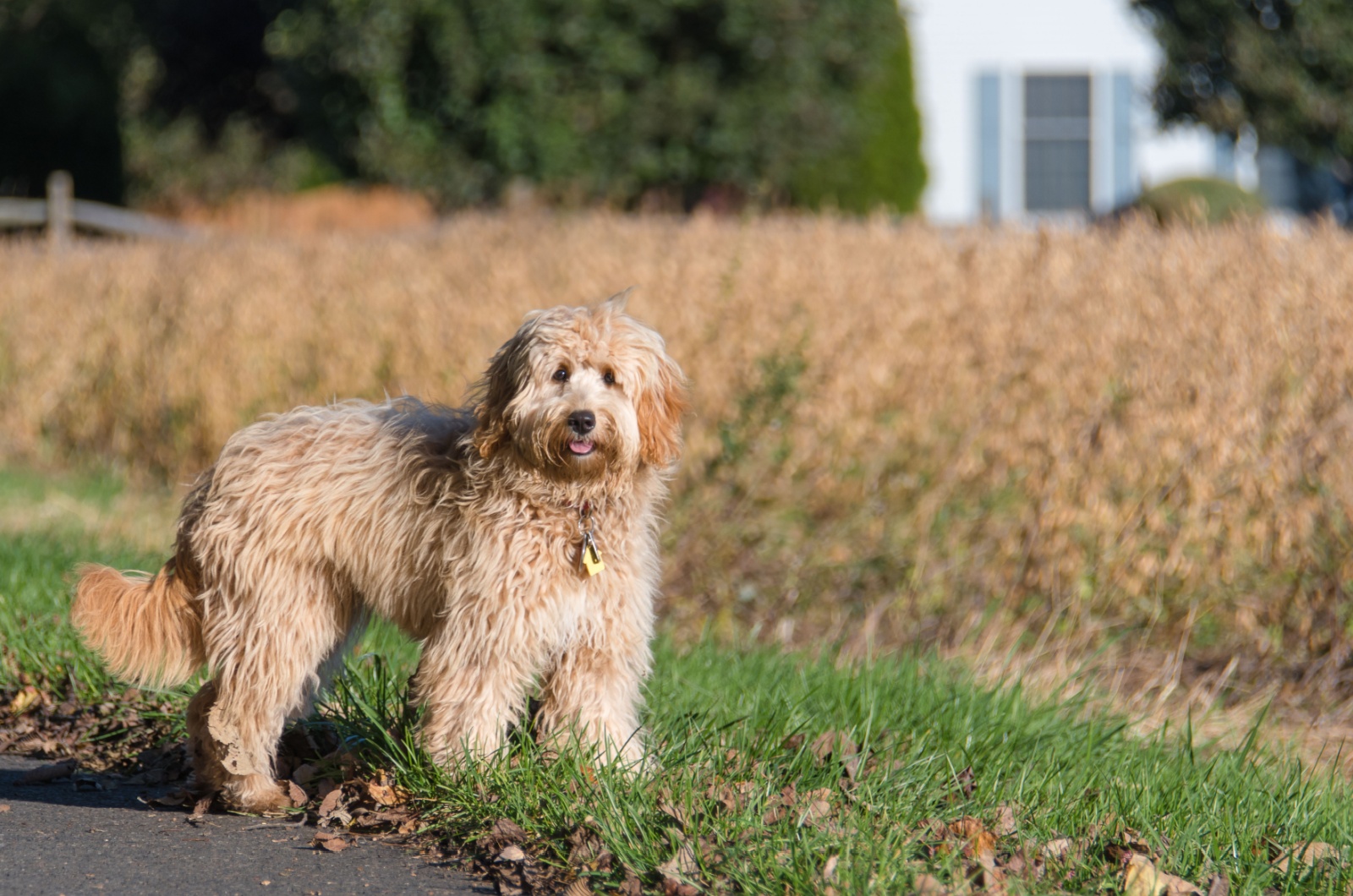
Whether you are in the desert or on a mountain, chilling on a farm, or living life in the city, the Miniature Goldendoodle will adapt with ease. Although, you should keep in mind that they can’t handle the severe cold as well as their larger cousin (the Standard Poodle) can. Because of this, make sure to dress them warmly if harsh winter is approaching.
They crave and thrive being around people and other animals. If you are single and on the lookout for a second pet, the Mini Goldendoodle is an excellent idea.
But, if you travel a lot or plan on being away from home most of the time, you might want to switch to another breed as separation anxiety can be a real problem for these pooches.
4. The Health Of The Mini Goldendoodle
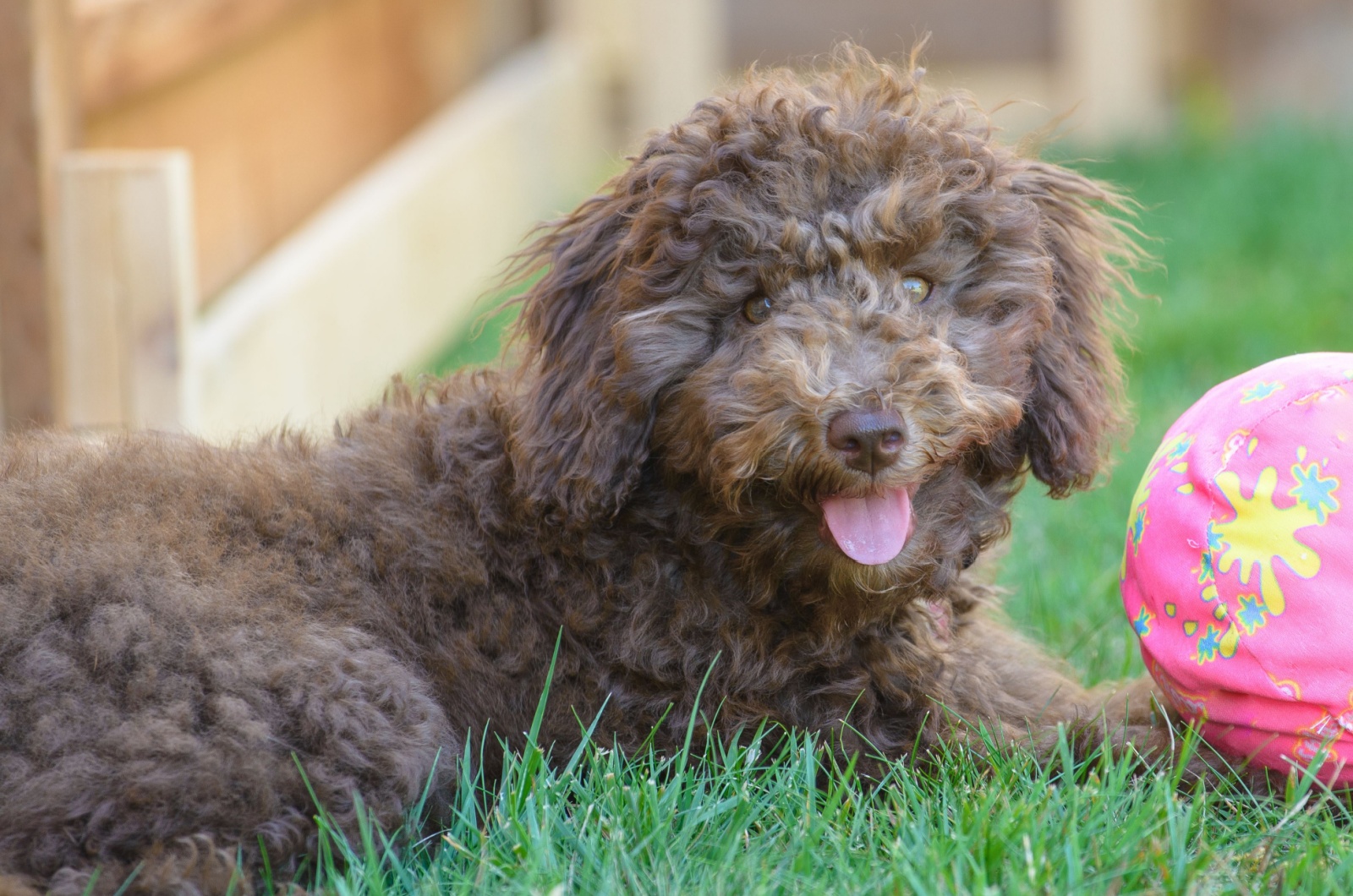
Even though knowing the long-term health prospects of a designer or hybrid dog can be challenging, they tend to have fewer genetic issues than purebreds do. This is attributed to the simple fact that there are more genes flowing between two different breeds. This lessens the odds of a bad genetic issue coming through in the puppies.
When mixing two closely related breeds, we can expect to see the same genetic diseases found in their parents. But, what happens when we take two unrelated breeds and mix them together like the Mini Goldendoodle?
For example, the Mini Poodle has a lot of eye issues within its breed. On the other hand, Golden Retrievers are largely unaffected by the same issue. What breeders hope to achieve by combining these two breeds is that the good eye genetics of the Golden Retriever wins out.
But, as it usually turns out, when you solve one problem, two more come up. For instance, both the Miniature Poodle and the Golden Retriever suffer from higher rates of hip dysplasia. This means that mixing these two breeds can result in dogs that may develop hip problems as they age or from birth.
This is why it is important to find a very good and methodical breeder who understands what they are doing and takes it seriously. Apart from extensive knowledge, they should have written records that show past breedings and the health of those litters. All reputable breeders should keep files on litters that were born up to ten years in the past.
When you are looking to invest a lot of money into a dog that will also become a part of your family, this information can be really valuable. The pooch that you choose will be a member of your family for a long time, and you want it to be healthy throughout its life.
5. Lifespan
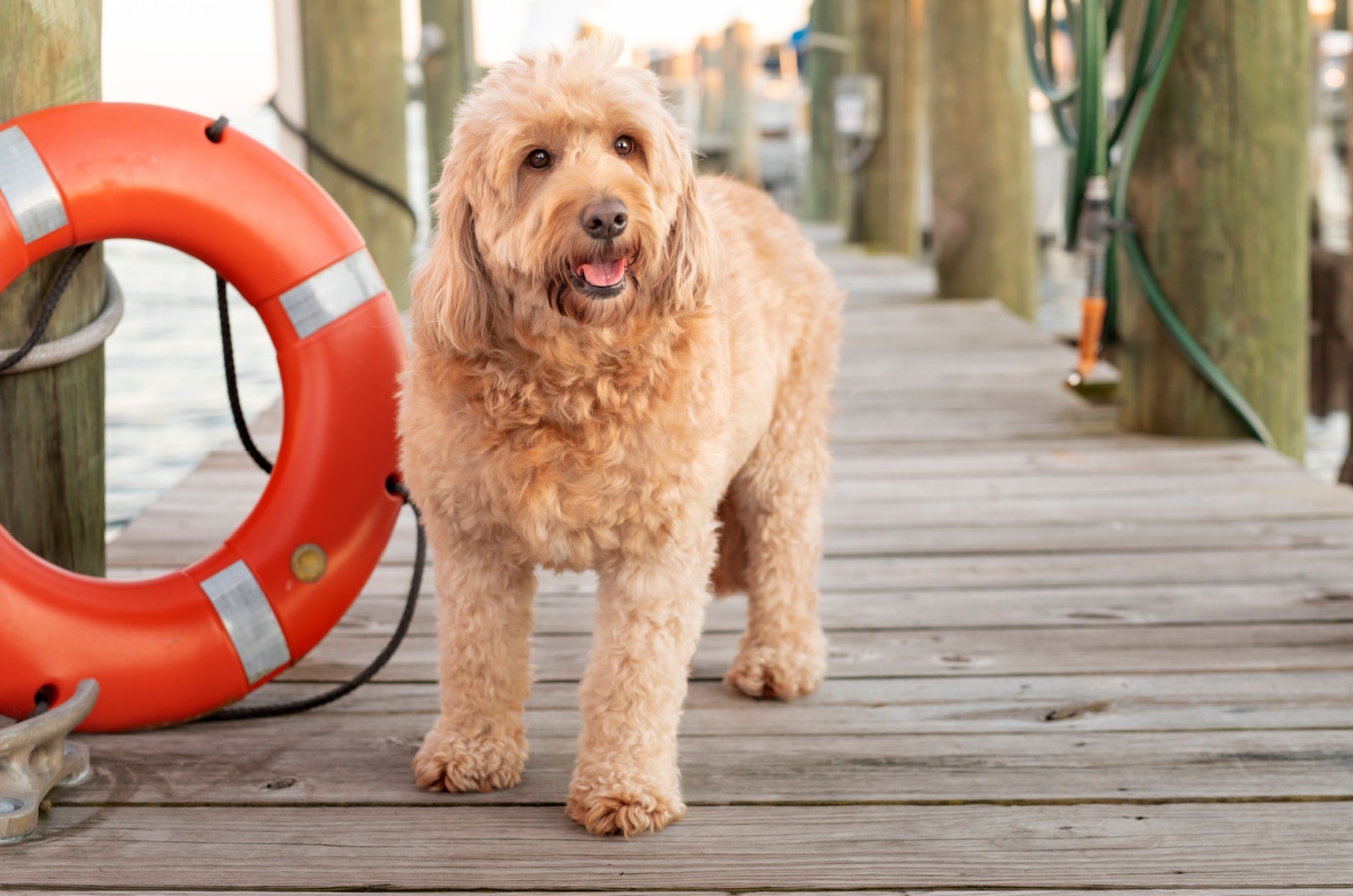
Like many traits and characteristics found in these dogs, their lifespan will also vary depending on what generation of Mini Goldendoodle they are.
The Poodle usually lives two to three years longer than the Golden Retriever. The Poodle has an average lifespan of eleven to fifteen years, while Goldens tend to live approximately ten to twelve years.
According to this, you can expect your Miniature Goldendoodle to live between eleven and fourteen years.
6. Taking Care Of Your Mini Goldendoodle
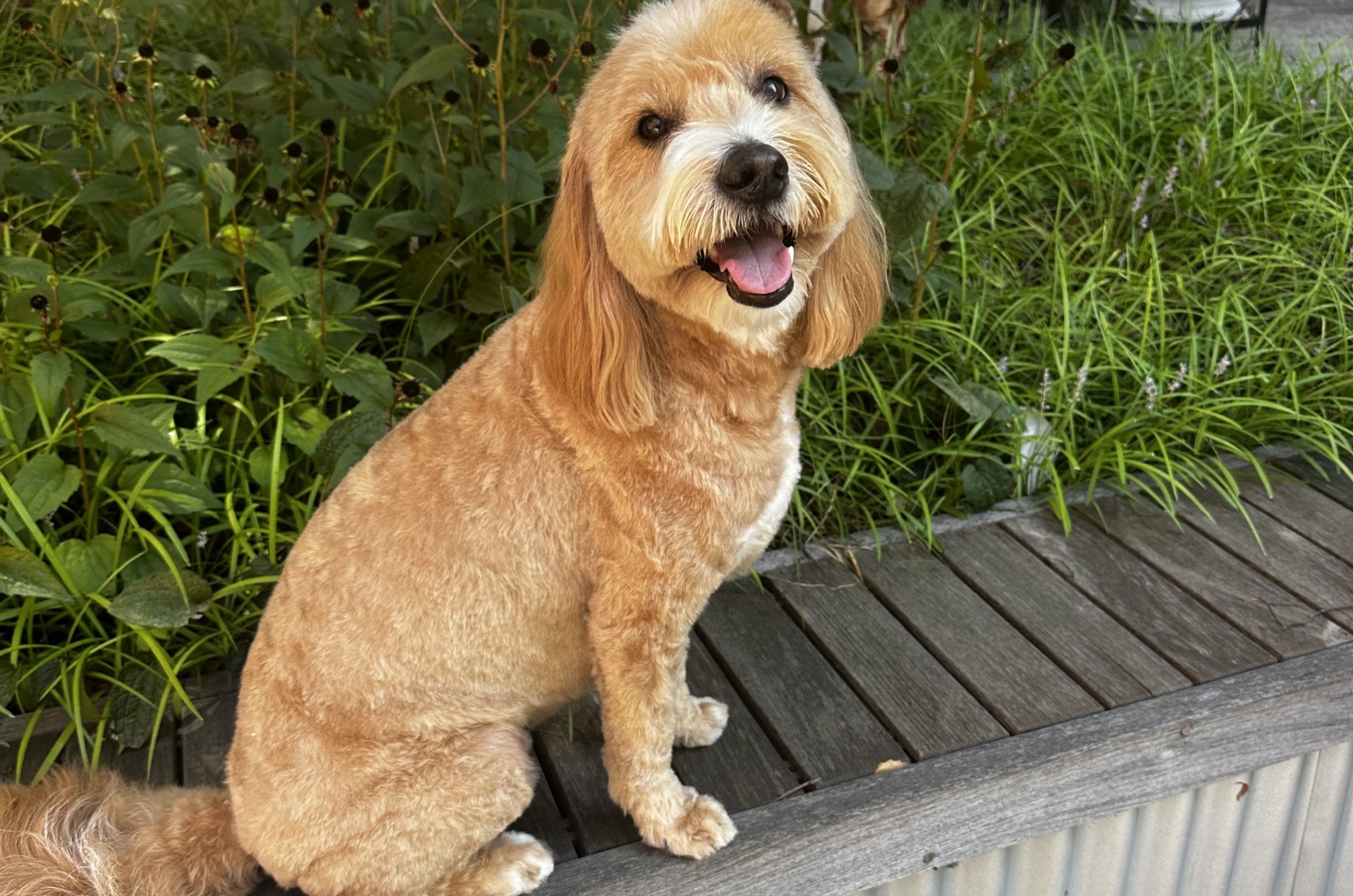
The two biggest genetic conditions that affect both the Poodle and Golden Retriever breed are mobility issues and epilepsy. These two problems can occur even when your goldendoodle is just a tiny pup!
So, it’s extremely important to be aware of these problems and help your goldendoodle live its best life!
7. Epilepsy Is An Issue
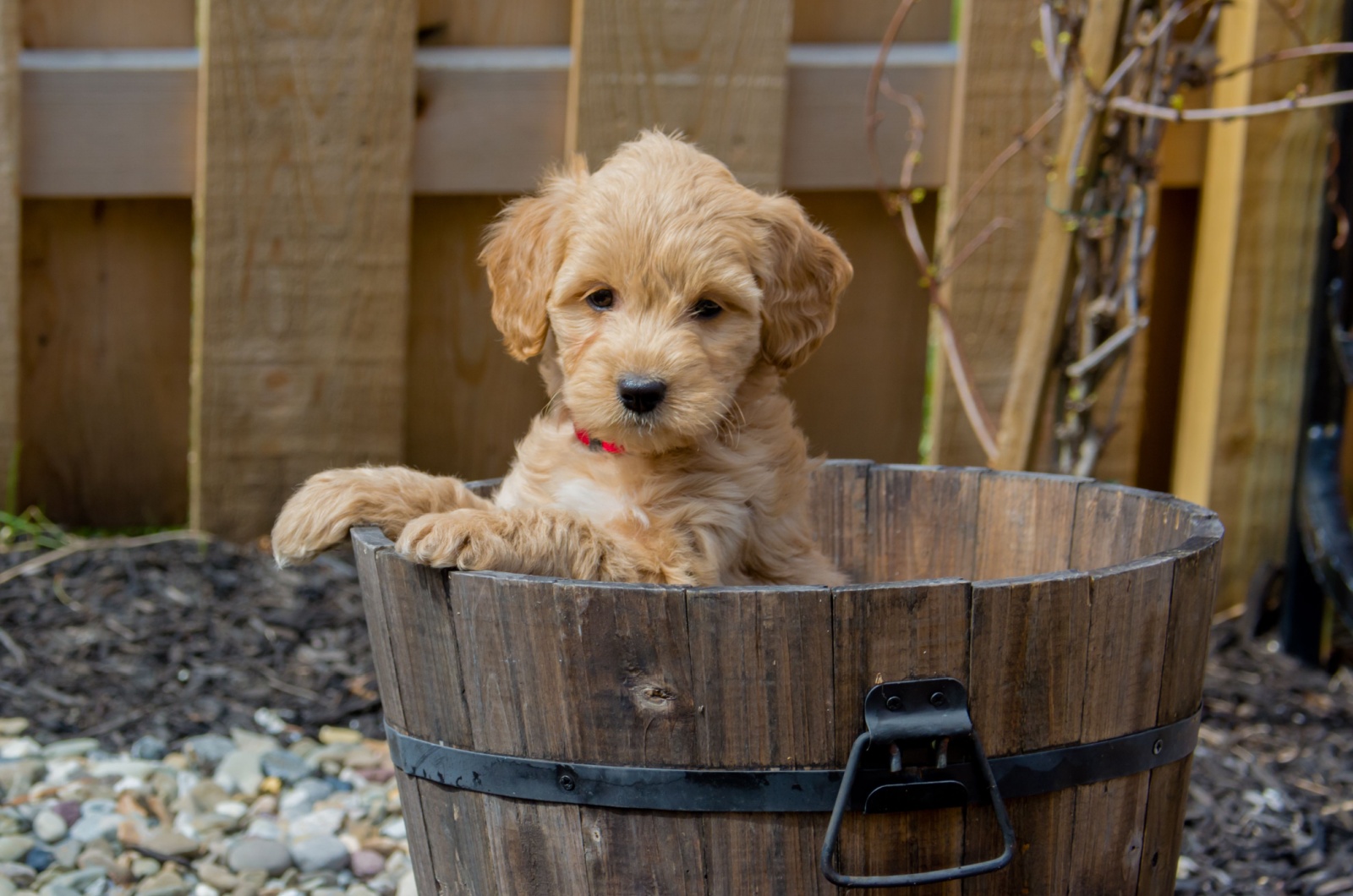
Credit: Shutterstock
If your dog inherits epilepsy from one of its parents, it will likely experience its first seizure before two years of age. For this condition, there is no cure, but conventional antiepileptics are successful in managing seizures in 70% of epileptic dogs.
But, this leaves 30% of epileptic dogs to struggle with uncontrollable seizures. The drug-resistant form of epilepsy affects people as well. Luckily, both humans and dogs no longer have to battle it without help.
CBD products are becoming more popular by the day, and you probably already know about them. They are being used to help dogs and humans with many medical conditions and illnesses.
8. Hip, Joint, And Other Mobility Issues
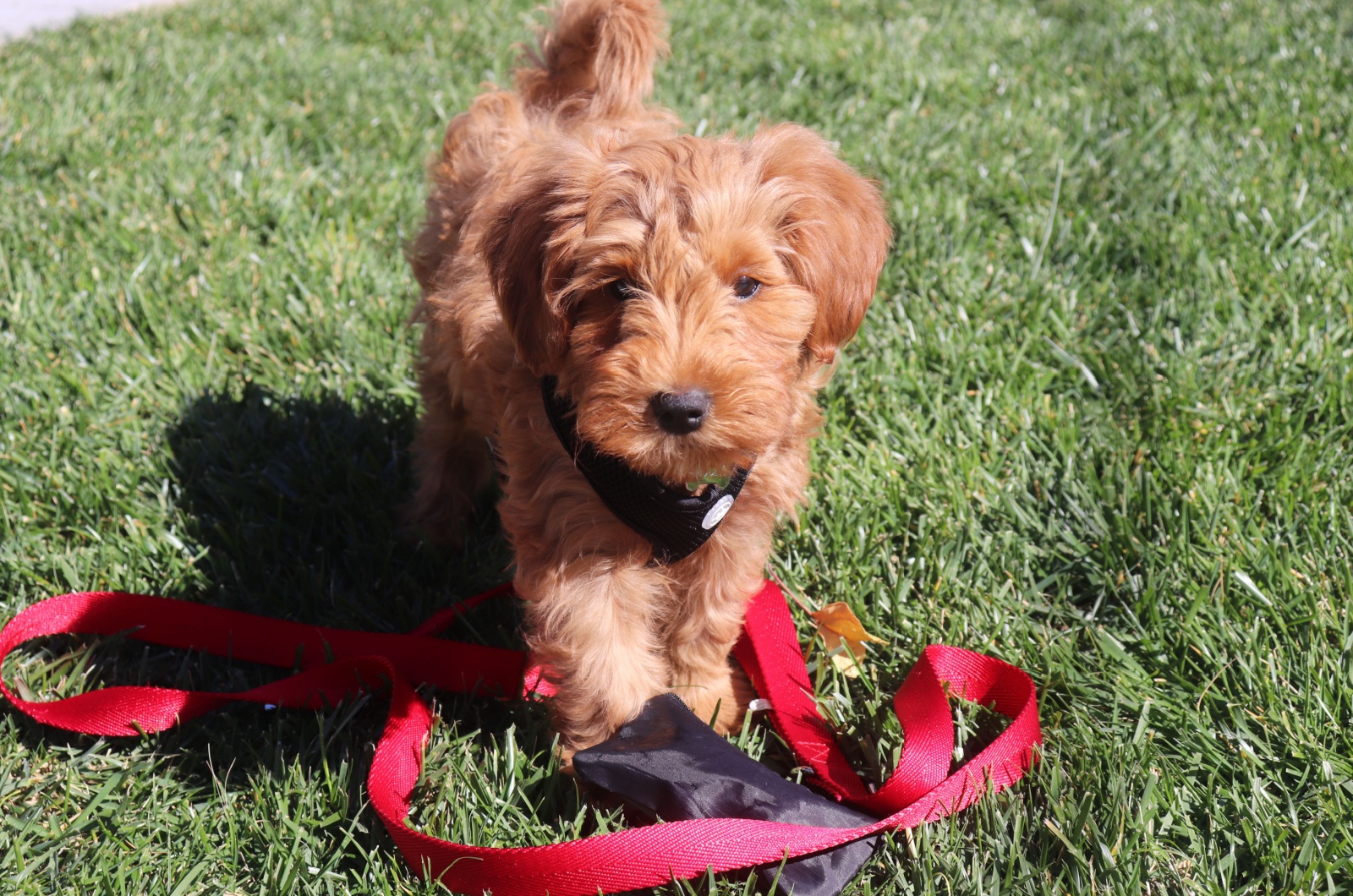
Credit: Shutterstock
Hip dysplasia is most often seen in medium to large dog breeds due to their size and rapid growth when young. But, the issues themselves don’t start until a dog reaches its senior years.
The Mini Poodle is one of the few small dogs with higher rates of hip dysplasia, similar to the Golden Retriever, which is a medium to large-sized breed.
Since both of these breeds are prone to hip dysplasia, the result of their crossbreed, the Miniature Goldendoodle, is susceptible to it as well.
If you notice mobility issues or want to give your dog extra hip and joint support in its older years, you can look for Advanced Mobility Support.
9. The Appearance Of A Mini Goldendoodle
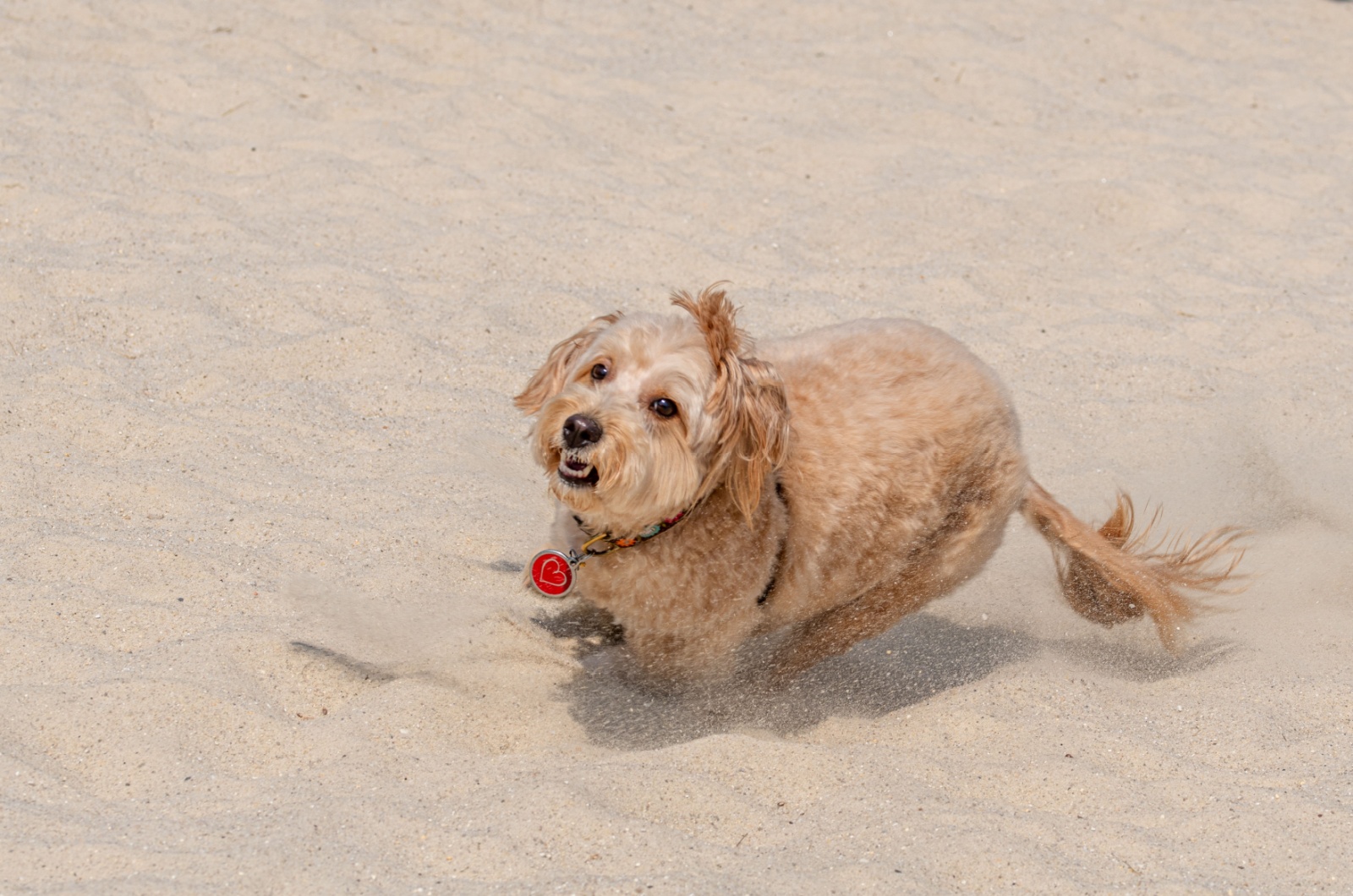
The biggest factor in determining what your Goldendoodle will look like is whether it is first or second generation.
The first generations of doodles tend to have large discrepancies because their parents look fairly different. These first generations or F1’s can be large and stocky with long straight hair and blocky heads.
The second-generation (Mini Goldendoodle x Mini Poodle) is more popular, has fewer variations, and favors the Poodle side of the mix more.
This means that the second generation or F1b Goldendoodles have a slender and smaller appearance with a shorter and loose curly coat. In addition, their muzzles get quite fluffy, giving them a luxurious beard of sorts.
To most people, these dogs look like stuffed toys brought to life, and it’s easy to see why. Their coat and size contribute to this image, but it’s their black button eyes that really give them their cute teddy bear look.
Contrary to other designer breeds, the coat colors of these dogs come in a rather narrow selection. The coat of a Mini Goldendoodle comes in blonde, white, apricot, and most commonly gold/amber.
10. More About The Size

As their name suggests, Miniature Goldendoodles tend to be rather small, but how small exactly?
Depending on its generation, a Mini Doodle will weigh around twenty to thirty pounds. This might seem big to some people, and in fact, it is when compared to other small breeds.
But, since Standard Poodles can hit almost twice that size, it kind of makes sense.
To have a better chance at guessing how big your Mini Goldendoodle puppy will be, you can use the guide below:
First-generation – these doodles typically weigh thirty to forty pounds and have a height of fifteen to twenty-one inches.
Second, third, etc. – from all other generations, you can expect a weight of fifteen to thirty pounds and a height of thirteen to eighteen inches.
11. Grooming A Miniature Goldendoodle
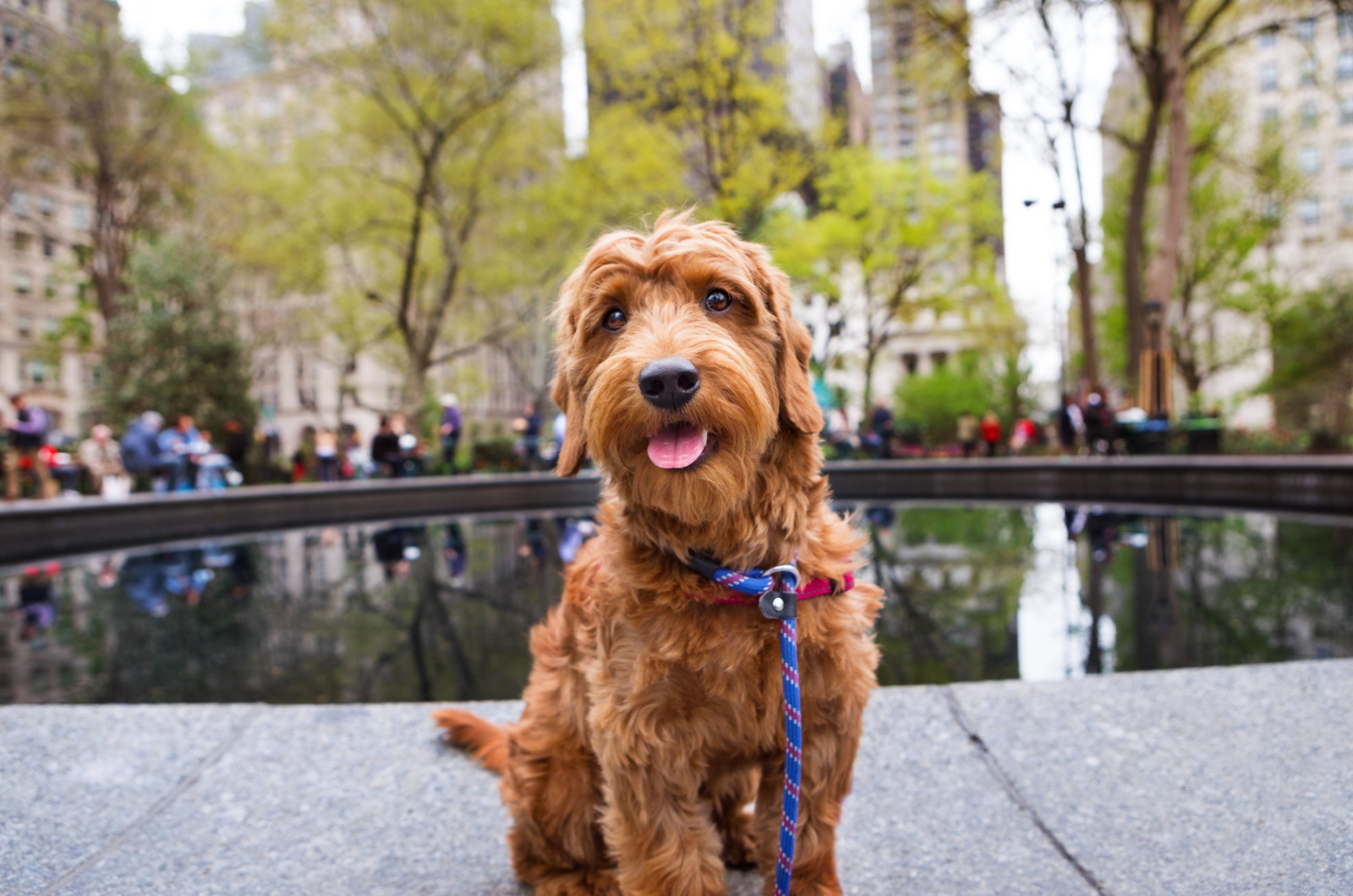
Despite their low-shedding, Miniature Goldendoodles still require moderate grooming because of their long curly coats. The more genes the dog inherits from its Golden Retriever parent breed, the more it will shed and the longer its coat will be.
A metal pin brush is usually the best tool to tame the soft curls on your Mini Goldendoodle. This will also ensure that the hairs don’t become tangled or matted, which can be quite painful for your pup.
Some owners state that it can be tricky to groom the fast-growing hair around its eyes and ears, so they send their furry-friend to a professional groomer every eight to twelve weeks.
While this can make things a lot easier for you, it is not necessary, and you should be able to manage grooming on your own.
Another key thing in keeping your pet well-groomed is to check and clean its ears regularly. Mini Goldendoodles have floppy ears, and if they spend a lot of time in the water, you should always be on the lookout for ear infections.
12. Exercise Requirements Of A Mini Doodle
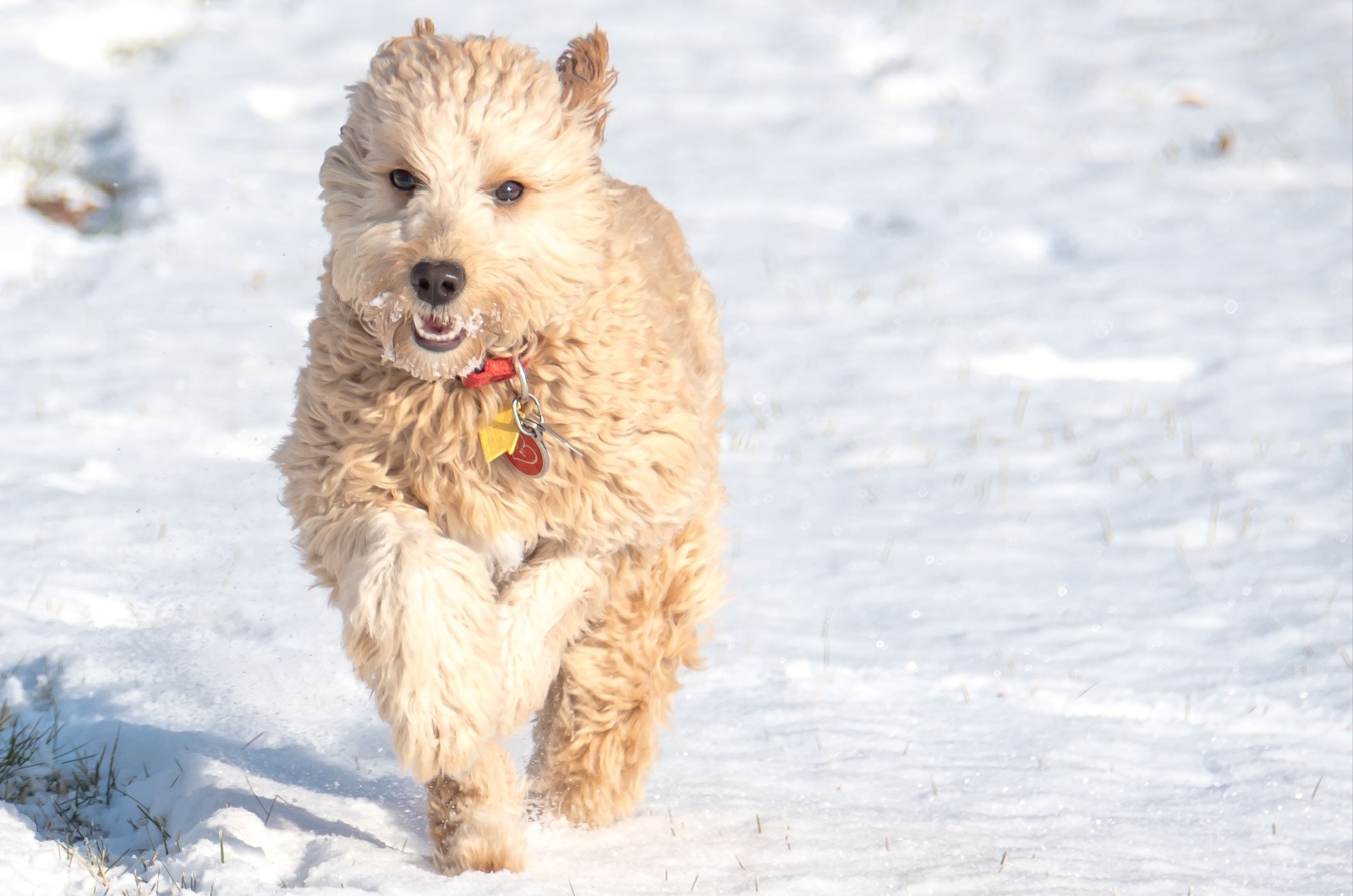
Despite their mini size, the energy levels of Miniature Goldendoodles can go through the roof! They require a solid 45 to 60 minutes of exercise every day. This can be achieved by taking them for a walk or including playtime two to three times a day.
Also, don’t expect your Mini Doodle to be satisfied as a lapdog all day because you will be disappointed. Both of its parents are traditionally working dogs and have a strong bond with water.
The Miniature Goldendoodles love swimming, so try to take them to a local lake or a doggy pool if it is possible. They will be grateful.
Since they are pretty intelligent dogs, they can get bored easily, so be sure to mix up his normal exercise routine with all sorts of different activities.
The bigger they are, the more exercise they will require. This is common sense, and if that is what you are looking for, then maybe a standard Goldendoodle is more suited to your needs. They are larger in size and can be great companions for long walks, runs, hikes, and other outdoor activities.
13. How To Train Your Doodle
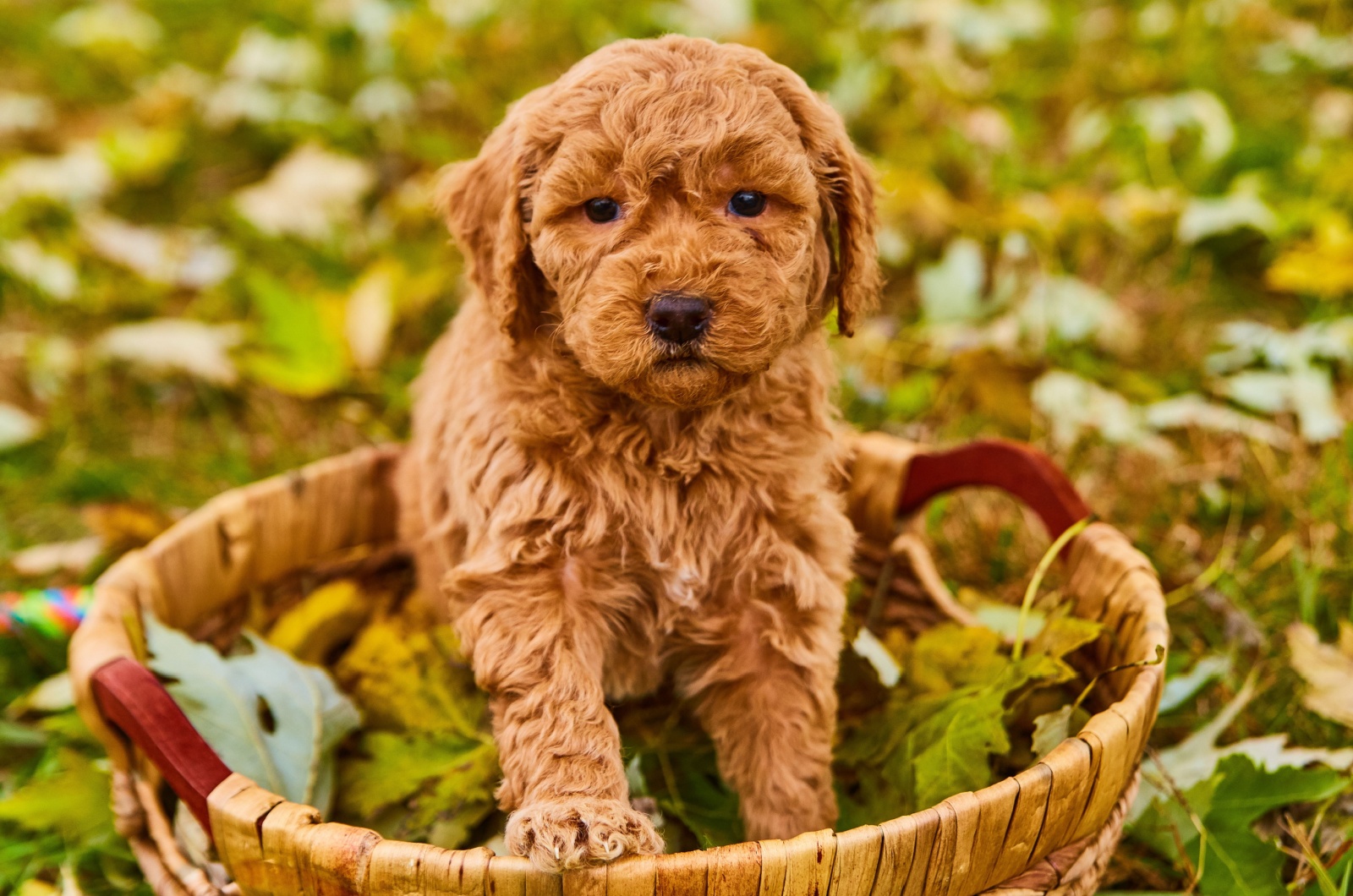
Mini Goldendoodles are highly intelligent and always eager to please. These two qualities combined make them very easy to train.
That doesn’t mean that it requires no effort, though. These doggies are easily excited and always look for the next best thing to do. Because of this, their concentration levels aren’t the best you can find, and it is important to keep training sessions short and sweet.
Positive reinforcement training is more welcome than harsh punishment. Make sure to give a lot of verbal praise, small training treats, and lots of cuddles to make the process easier for both of you.
It goes without saying that it is crucial to socialize your pup from an early age and expose it to unfamiliar sounds and sights every chance you get. Socialization will build its confidence and ensure that it grows up to be a well-mannered dog.
The effort you put in from an early age will guarantee a much easier time when it grows up. Plus, it will serve as a great bonding session for both of you.
14. Finding A Mini Goldendoodle Breeder
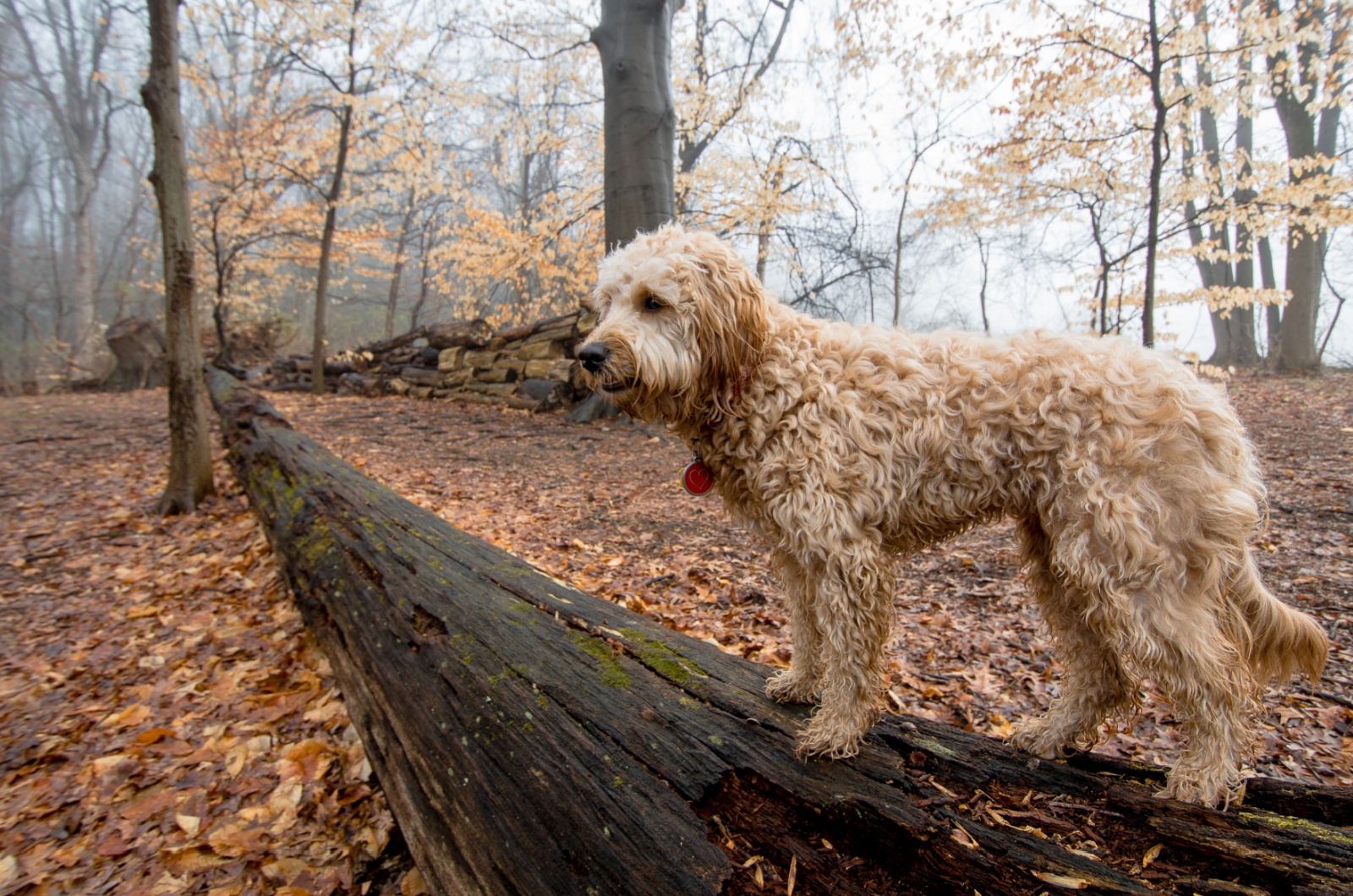
The easiest and quickest way to begin your search is to simply type ‘Mini Goldendoodle breeders’ into any online search engine. This will generate many results, so be sure to read all of the reviews and do a little bit of research yourself.
Another way of finding breeders of your new puppy is to join Goldendoodle groups on social media platforms. There you can find people who own a Mini Goldendoodle or who are looking to buy one, who will happily give you recommendations and advice.
Keep in mind that when buying from a breeder, you can expect to pay somewhere between $1,000 and $1,500 for a Miniature Goldendoodle. This is just for the first-generation of this mix.
The second generation can cost even more than the first since the likelihood that they are hypoallergenic is higher.
Puppy mills are a growing problem in the private breeding world. However, they are pretty easy to avoid, and you want to meet private breeders and see where they keep the puppies. This is usually their house. Also, make sure to state that you want to meet one, if not both, parents.
It’s easy to get lost in the puppies and forget about the bigger picture. Don’t forget to pay attention and see how the breeders interact with the puppies and their parents. This also means that you should spend some time with the parents as that can be a good indicator of what characteristics your new puppy will have.
Rescue and shelters
As with most designer dogs, Mini Goldendoodles are much less likely to be found in shelters. Your best bet is to search for one in breed-specific rescue centers.
Not only will adopting a Mini Doodle save you a lot of money, but it will also help a doggie in need.
15. The Mini Goldendoodle Is Incredibly Clever!
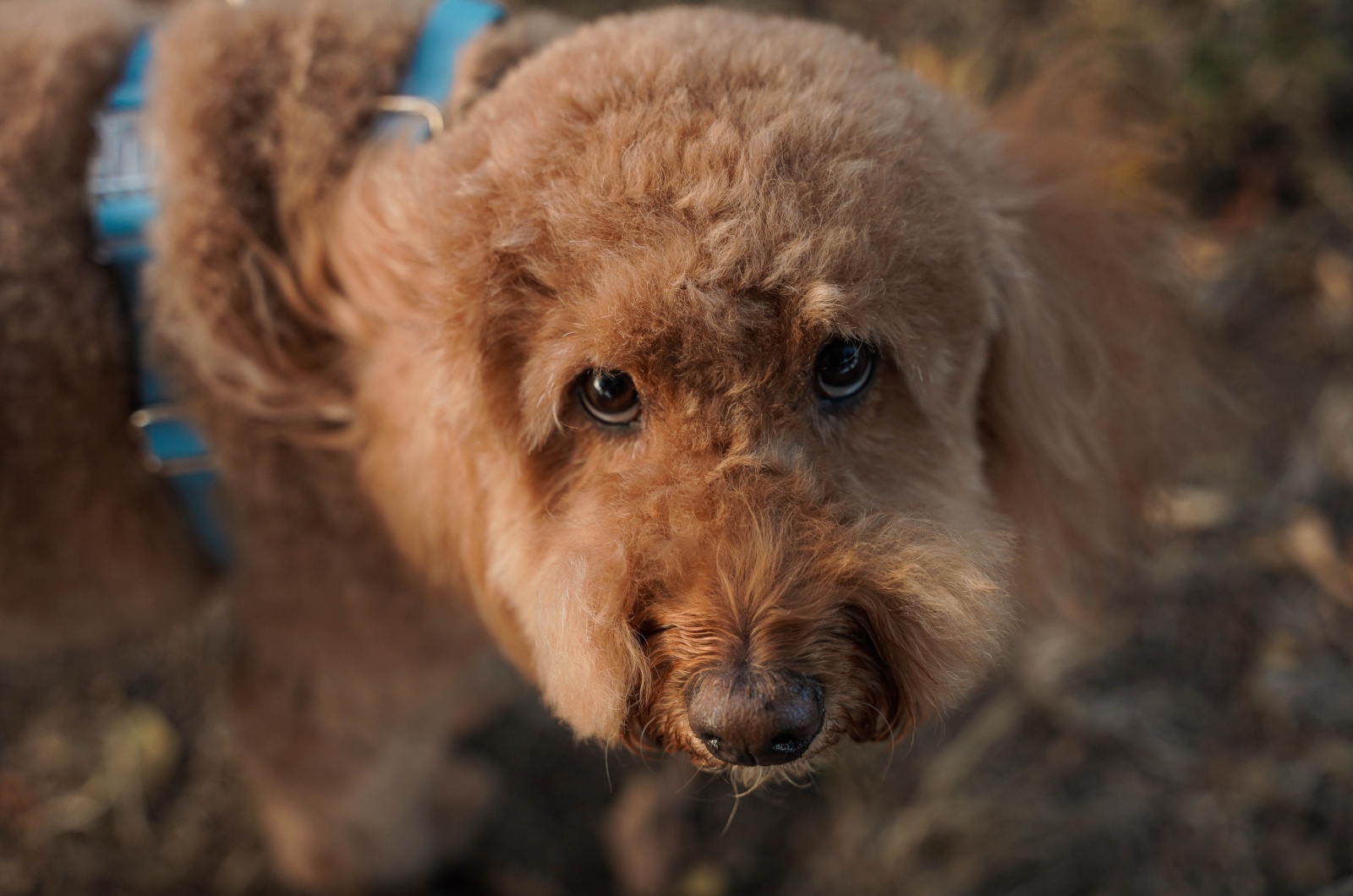
These little pups are a mix of the Golden Retriever and the Poodle, which means they inherit the Poodle’s high intelligence and the Golden Retriever’s friendly nature. Not only are they quick learners, but they also excel in various dog sports and can easily master tricks.
Despite their playful energy, they tend to be quiet and well-mannered, making them great companions for families looking for a smaller, low-maintenance dog with a big heart!

